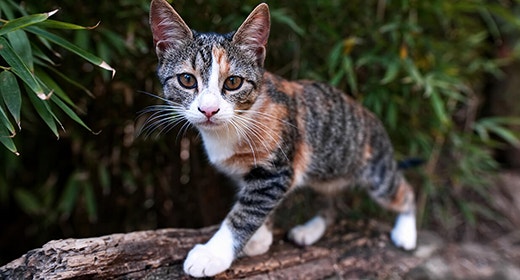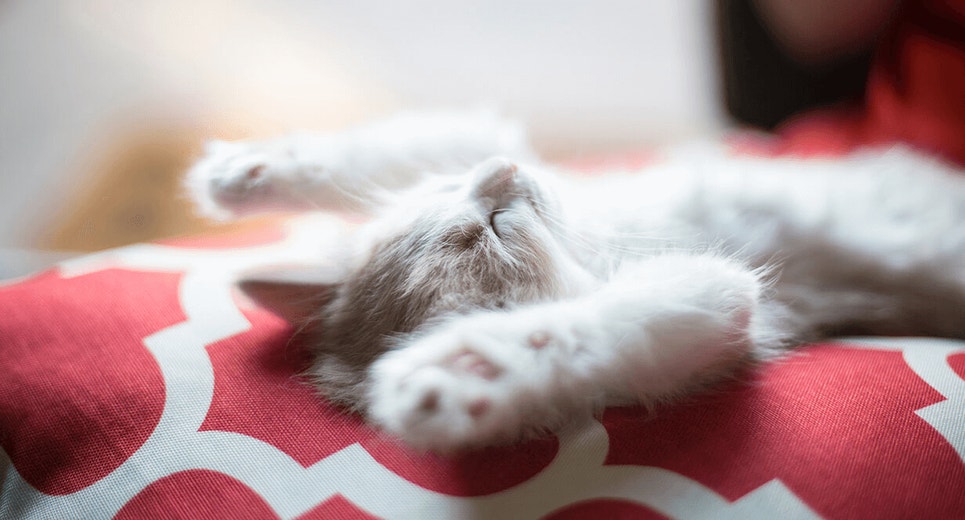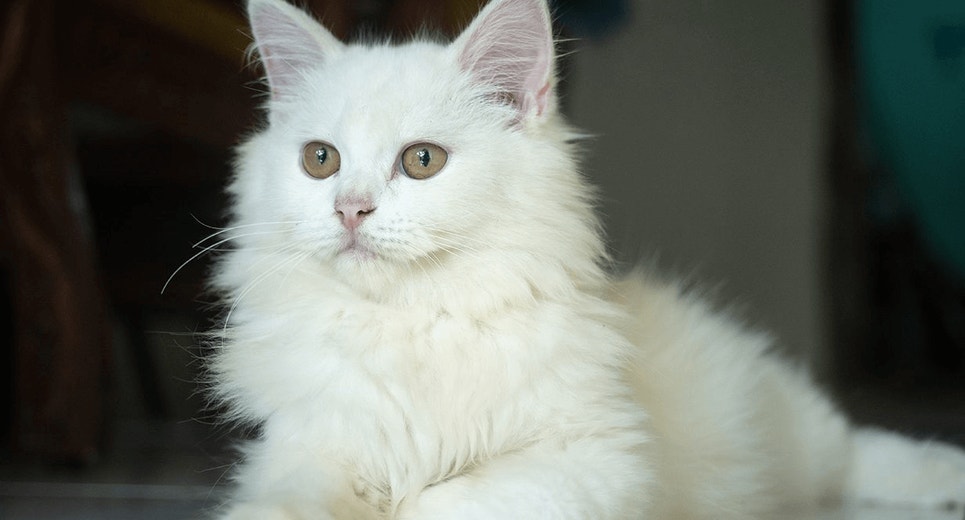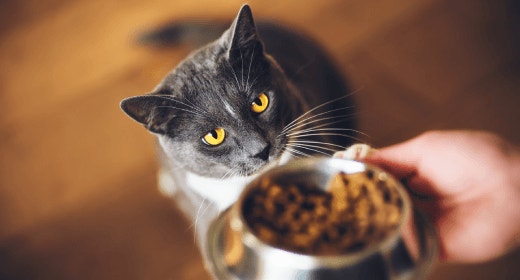
The Importance of Antioxidants in Your Cat’s Food
IAMS® research is advancing antioxidant nutrients for cats to help improve immune function.
- Antioxidants are important, naturally occurring nutrients that help maintain health by slowing the destructive aging process of cellular molecules.
- Antioxidants also can be important in improving immune responses and vaccine recognition in dogs and cats. This may be especially critical for young animals that are being vaccinated while their immune system is still developing.
- Antioxidants can reverse decreases in immune-cell function for senior dogs and cats. A blend of several antioxidants in moderate amounts may be more effective than high levels of one antioxidant.
Antioxidants in Our Cat Foods
Antioxidants are nutrients found naturally in the body and in plants such as fruits and vegetables. Common antioxidants include vitamin C, vitamin E, and certain compounds called carotenoids (including lutein and beta-carotene).
How Antioxidants Work
As cells function normally in the body, they produce damaged molecules called free radicals. These free radicals are highly unstable and steal components from other cellular molecules, such as fat, protein, or DNA, thereby spreading the damage.
This damage continues in a chain reaction, and entire cells soon become damaged and die. This process is called peroxidation. Peroxidation is useful because it helps the body destroy cells that have outlived their usefulness and kills germs and parasites. However, when left unchecked, peroxidation also destroys or damages healthy cells.
Antioxidants help prevent widespread cellular destruction by willingly donating components to stabilize free radicals. More importantly, antioxidants return to the surface of the cell to stabilize, rather than damage other cellular components.
When there are not enough antioxidants to hold peroxidation in check, free radicals begin damaging healthy cells, which can lead to problems. For example, free radical damage to immune cells can lead to an increased risk of infection.
Antioxidants and Immune Response
Because antioxidants play a key role in minimizing damage to cells, such as those that make up the immune system, recent research examined the benefits of certain antioxidants on the immune response of dogs. The results of these studies indicated that antioxidants are important in helping dogs and cats maintain a healthy immune system.
The research also showed that each antioxidant benefits the immune system uniquely, so one antioxidant at high levels is not as effective as a group of antioxidants acting together.
| Antioxidant | Source | Function |
|---|---|---|
| Vitamin E | Plant oil extract, tocopherols | Optimizes immune system's T-cell activation |
| Lutein | Marigold extract | Optimizes immune system's B-cell activation and helps vaccine recognition by cats |
| Beta-carotene | Vitamin premix, corn meal, chicken by-product meal, and chicken fat | Optimizes types of cells present in the blood, increases antibody levels in the blood, and optimizes vaccine recognition by dogs |
Antioxidants and Aging
Recent research also examined the effect of aging on immune responses. The findings indicate that as cats age, immune cell responses may decline. Including antioxidants in the diet can reverse the age-related decrease in immune cell function, as shown below for vitamin E in cats.1
Increased immune cell response is not always proportional to the amount of vitamin E. Although feeding a diet containing 250 IU vitamin E/kg enhanced immune cell response in old cats, adding 500 IU/kg did not achieve the same beneficial effect.
1Hayek MG, et al. Dietary vitamin E improves immune function in cats. In: Reinhart GA, Carey DP eds. Recent Advances in Canine and Feline Nutrition, Vol III: 2000 IAMS Nutrition Symposium Proceedings. Wilmington, OH: Orange Frazer Press, 2000; 555-564.




